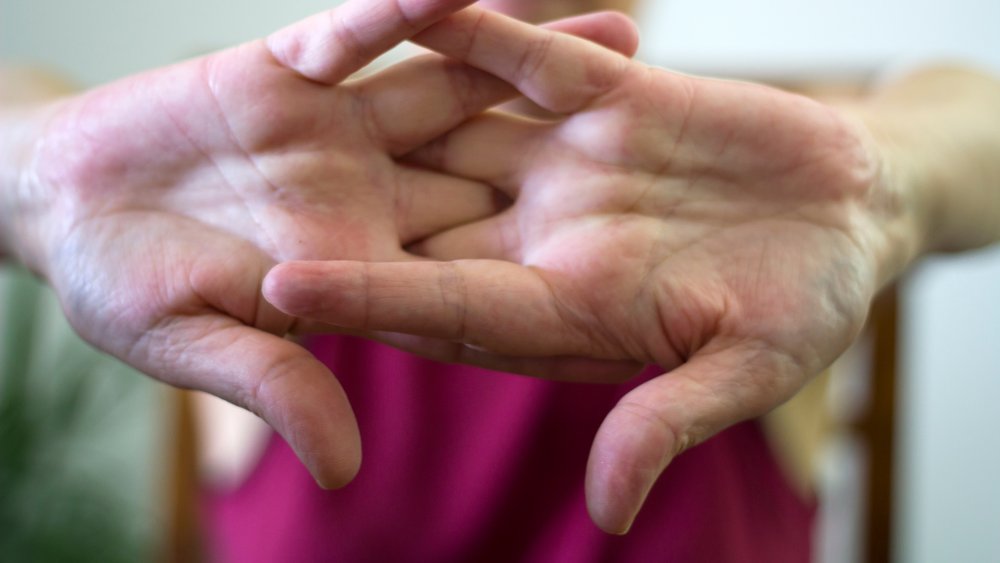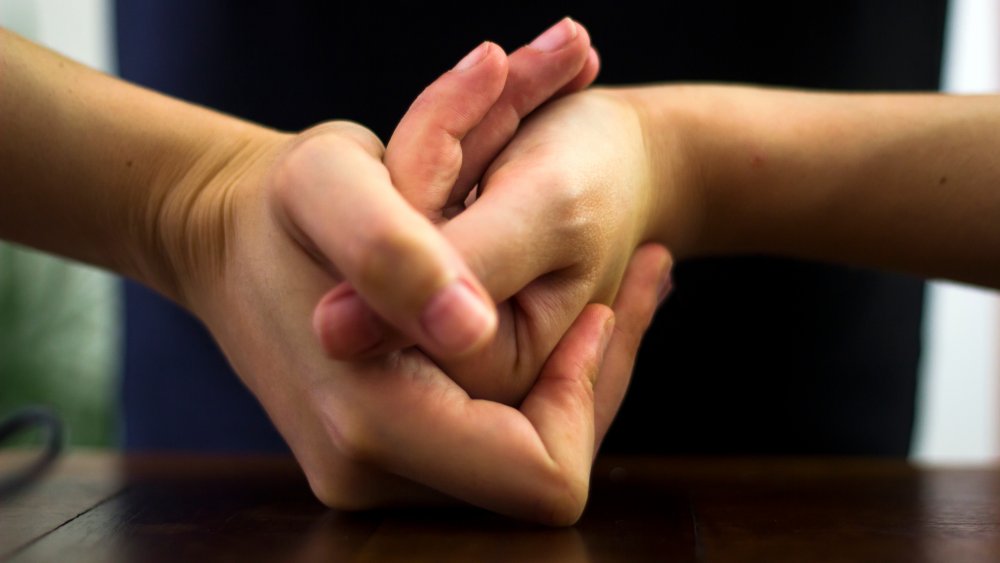Fact Or Fiction: Cracking Your Fingers Causes Arthritis
More than half of us regularly crack our knuckles, according to The Journal of the American Board of Family Medicine — a habit that certainly gets on the nerves of our better halves, roommates, or anyone else who has to tolerate our presence. That popping noise of those finger joints being pulled might be a satisfying moment for us, but it's enough to cause some loud sighing and eye-rolling from our co-habitants, who might chide, "Stop doing that! You're going to give yourself arthritis!"
Certainly, no one wants to develop arthritis in their hands — this debilitating condition is painful and has no cure (per WebMD). But does cracking your fingers cause arthritis? Experts say this is actually just a myth.
"Cracking your knuckles does no harm at all to our joints," orthopedic surgeon Dr. Robert Klapper told the Cedars-Sinai Blog. "It does not lead to arthritis." Harvard Medical School's Robert H. Schmerling, M.D., agreed, and added, "if you want someone else to stop cracking their knuckles, you'll need a better reason than telling them they're ruining their joints."
Multiple studies support these doctors' reassurances. While most research evaluated large groups of patients, in one unique study, a physician cracked the knuckles on his left hand and not the right one over a 50-year time period, and was able to demonstrate no difference in degeneration between the two hands on x-ray (via Healthline).
People crack their knuckles to relieve stress, experts say
So why do we crack our knuckles in the first place? There's a physical sensation that comes from cracking knuckles that many people find relaxing. "Aside from some degree of compulsion [aka decades of habit], cracking the knuckles actually releases several pounds of pressure from the joints," New York City-based physical therapist Scott Weiss, DPT, told The/Thirty. Sure, this can feel really good, but above all else, there's an emotional release to knuckle-cracking, Klapper said. "Feeling good after cracking your knuckles is a psychological experience," he explained.
As good as a nice knuckle crack may feel, the glare of irritated friends and family members may not feel so great. If you want to break the finger cracking habit, you can approach this goal the same way you'd take on any behavior you wanted to unlearn: use either positive or negative behavioral therapy techniques to reward or punish yourself. Some examples of positive behavioral therapy would be treating yourself to something you like — chocolate, anyone? — every time you resist the urge to crack, while negative therapy could be snapping your wrist with a rubber band when you give in to temptation (per First Cry Parenting). If you're cracking your knuckles to relieve stress, getting to the bottom of what's making you anxious might also reduce your need to snap, crackle, and pop in the first place.


